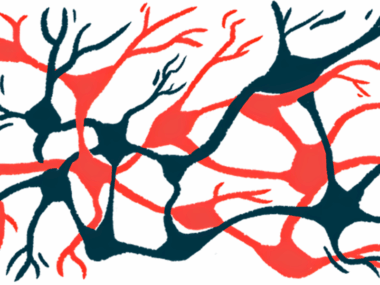SYNTap Biomarker Test to Aid Early Parkinson’s Diagnosis Available in US
Written by |

Amprion has announced the commercial rollout of SYNTap Biomarker Test, a laboratory test to accurately detect alpha-synuclein aggregates, a hallmark of various brain diseases, including Parkinson’s disease.
Alpha-synuclein, a protein, can misfold and accumulate (aggregate) in toxic clumps called Lewy bodies, leading to the death of nerve cells. In Parkinson’s, the affected brain cells produce dopamine, the signaling molecule used to send messages between nerve cells that control body movements.
Alpha-synuclein aggregates, also referred to as prions, underlie other neurodegenerative conditions, including Lewy body dementia (LBD) and multiple system atrophy (MSA), and are associated with Alzheimer’s disease.
Neurodegenerative diseases are often misdiagnosed due to a range of overlapping symptoms at onset. The SYNTap Test works to distinguish those with and without alpha-synuclein aggregates, improving the likelihood of an accurate diagnosis more early in a disease’s course.
“Brain diseases affect individuals differently. For instance, ten patients can have ten different biomarker profiles,” Russell Lebovitz, MD, Amprion’s CEO, said in a press release.
“The SYNTap Test provides physicians a molecular tool to greatly improve diagnostic accuracy. This is vital because personalized medicine is the key in treating neurodegenerative disorders,” Lebovitz added.
Using a few drops of cerebrospinal fluid (CSF, that which surrounds the spinal cord and brain), the test applies Amprion’s proprietary Prion Detection Science — called Seed Amplification Assay (SAA) — which mimics the process by which proteins misfold and aggregate. If aggregates form, even at minute levels, they are amplified and detected using a fluorescent probe.
SYNTap’s accuracy was evaluated using samples isolated from people with Parkinson’s or Lewy bodies dementia, and compared with patients without neurological disease. In research studies, the test also detected aggregates of misfolded alpha-synuclein years before symptoms appeared, and found aggregates in people with other neurodegenerative diseases, the company reported.
The test is qualitative, which means it can only rule in or rule out the presence of aggregates, and does not indicate whether a person will go on to develop diseases related to alpha-synuclein. It is intended to be used alongside other assessment tools to help clinicians make an early and accurate diagnosis.
“Before the SYNTap Test, there has been no specific, objective laboratory test for the diagnosis of neurodegenerative diseases such as [Parkinson’s disease], LBD, and MSA. Traditionally, patients are diagnosed based on clinical symptoms, which means their disease is relatively advanced,” said Claudio Soto, PhD, chief scientific officer at Amprion.
“Our technology detects the prion biomarkers in CSF samples years before patients show symptoms. Such early diagnosis is crucial because it enables physicians to steer their patients to proper treatments,” Soto added.
Testing is done at a physician’s request at Amprion’s registered laboratory in San Diego, California. SYNTap is available across the U.S, except in New York, Pennsylvania, Maryland, and Rhode Island; the company plans to soon launch the test in these states.
The development of SYNTap was supported by the National Institutes of Health, The Michael J. Fox Foundation, the Alzheimer’s Drug Discovery Foundation (ADDF), and The University of Texas McGovern Medical School.
The SYNTap Test was designated a breakthrough device by the U.S. Food and Drug Administration to help diagnose people undergoing evaluation for Parkinson’s. The designation is given to products that effectively help identify life-threatening or debilitating diseases for which no alternatives exist or that provide significant advantages over current options.



